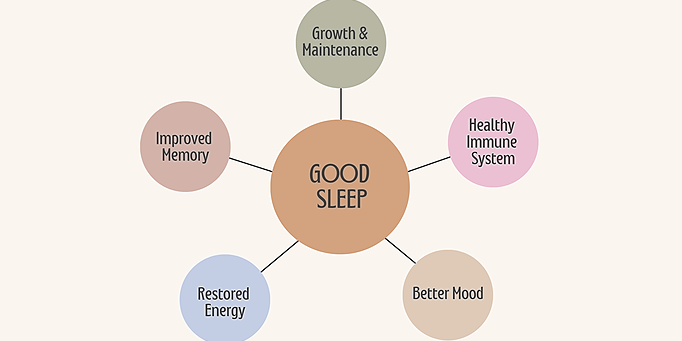Getting a good night’s sleep is essential for both our physical and mental health. We still don’t know exactly why we sleep but what we do know is that sleeping well is essential for a number of reasons:
1. The body goes through some essential maintenance while we sleep including the repair and growth of tissues, muscles, bones, and blood vessels.
2. Poor sleep can affect the immune system and increase the risk of diabetes, heart disease and high blood pressure.
3. Lack of sleep can affect mental processes such as problem-solving, judgement and learning as well as the ability to focus and complete tasks.
4. During sleep the brain processes the day’s thoughts and experiences, forms memories and stores information.
5 Sleep can aid recovery and healing and is important in regulating the hormones which control appetite and hunger.
6. Poor sleep can affect your mood and increase stress which can affect relationships and may sometimes lead to problems like depression and anxiety.
While we all know how a poor night’s sleep can leave us feeling tired, dizzy, and sluggish – a chronic lack of sleep can have a range of possible effects, such as
1. Poor concentration and difficulty focusing.
2. Low energy and problems staying alert.
3. Reduced creativity and ability to make decisions and solve problems.
4. Difficulty completing tasks and increased mistakes.
5. Low mood – feeling more anxious, irritable, and less able to cope with stress.
6. Poor memory and difficulty recalling information.
7. Problems taking in and learning new information and processes.
8. Eating more sugary foods and weight gain.
9. More infections and colds.
10. Reduced reaction times – affecting ability to drive safely and increasing the risk of accidents.
What matters as much as the quantity of sleep is the quality. Relying on short naps or only getting broken sleep can mean that you are not achieving deep sleep (Non-REM stage three). Deep sleep is the time when the body repairs itself and stores energy for the following day. To wake up feeling refreshed and energized it’s essential to get enough deep sleep.













